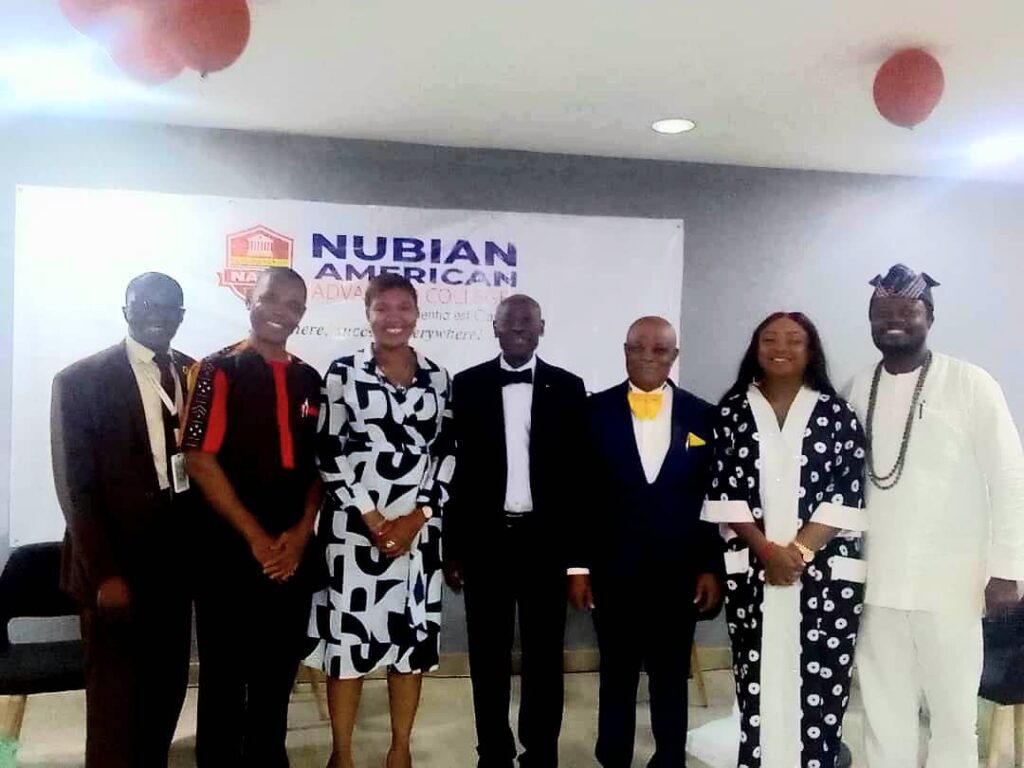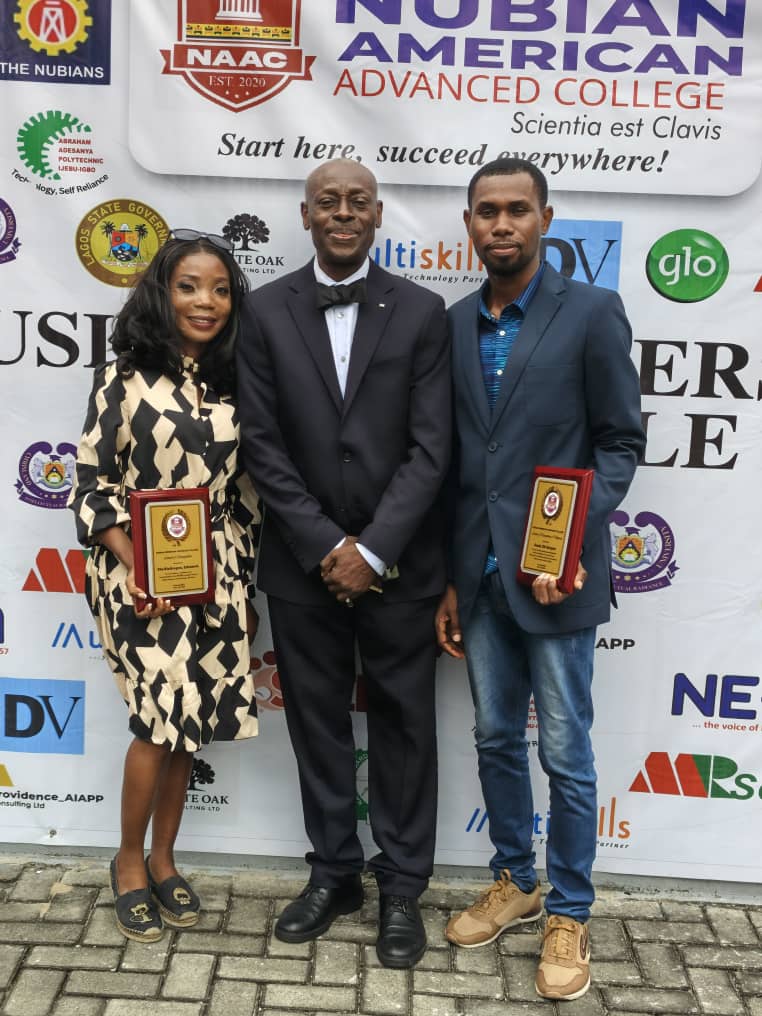Nigerian universities, polytechnics, colleges of education and other tertiary institutions across the country churn out every year thousands of graduates in diverse professional careers for employment in the labour market. Before 1990s, Nigerian post-graduate students had employment opportunities with mouth-watering offers in both public and private sectors awaiting them before graduating from their tertiary institutions. Most of them were employable with impressive skills aside certificates from their universities and other institutions.
Today, employment opportunities awaiting post-graduate students on graduating from school is fast declining; if not non-existence again. Many will attribute this declining to the poor economy of the country today hindering creation of more job opportunities and the shutting down of many moribound public and private companies or enterprises that were hitherto creating job oportunities. Aside this, most graduates being churned out today by many tertiary institutions are graded unemployable due to inadequate training and low skills from a deteriorating Nigeria’s educational system. The increasing rate of unemployability of Nigerian graduates today has caught the attentions of many of Nigeria’s educational sector’s stakeholders to stem the tide of lots of Nigerian graduates unemployability in the labour market.
Nubian American Advanced College (NACC); a major stakeholder in the Nigeria’s educational sector expressed profound concerns over the growing rate of graduate unemployability at its recent one-day Business Leadership Roundtable conference themed: Realigning Tertiary Educational for Nigeria’s Growth and Sustainable Development. One major discourse at the roundtable was graduate unemployability with solutions proffered by some seasoned stakeholders from both Nigeria’s educational and busimess sectors as speakers at the meeting.
Dr. Azhinoto Ozodio Ikpah, PhD, Chief Promoter of Nubian American Advanced College (NAAC) in his address to the participants at the one –day Business Leadership Roundtable said education should serve as the link between business/industry and the community/society. He noted that businesses exist in the environment and needs the people in the same environment to carry out its functions and operations.
Dr. Ikpah, who is also Chairman of Nubian Group, further posited that it makes sense that the products of tertiary institutions in any cummunity should meet the requirements and standards of the business entities in that community. To achieve this Ikpah said the level of interdependence, curriculums should be developed to be relevant to industries. “It is therefore fulfilling one of the purposes of our college (NAAC) to face headlong the challenge of graduate unemployability by asking the employers of the graduates why they do not consider them fit enough to be employed; to ascertain as a tertiary institution what gaps there are between the established and approved curriculums and the needs and demands of the industries that need their products, the graduates, He added that the need for collaboration among businesses and the tertiary institutions should be made clear. He also enjoined the regulators of various sectors to face the realities of harmonizing the needs of businesses with the curriculums that produce the workforce for their businesses.
“I am excited addressing a gathering of eminent citizens on account of education as it pertains to our clime and the concern for the development of our people and the society. I am honored to witness the First Business Leadership Roundtable organized by the Nubian American Advanced College, as the Chief Promoter It is my hope that this roundtable will make a positive headway in stemming the tide of graduate unemployability as we are poised to collaborate with other institutions to raise the bar in graduating students who will be workplace ready at the time they leave school. We are also open to support industries with tailor-made workforce development programs,” Dr. Azhinoto Ikpah, NAAC chief promoter and chairman Nubia Group offers.
Prof. Patrick Oyinkari, Provost/CEO of the college in his own address highlighted that practical minds are more relevant than paper qualifications in employability. He said Nubian American Advanced College (NAAC)’s establishment was predicated upon the notion that education is functional when it serves to bridge the community/society with its economy/industries. He added that the hallmark of the American tertiary education model serves as the motivation for the college to realign educational delivery from mere paper qualification to practical minds and hands reorientation. He further said the institution places a premium on students as vital stakeholders in the revolutionary drive to take education to the point of progress and development of society through the industries and businesses thereof.
He said NAAC focuses at training students that will not be mere paper carriers but champions that will conquer the world with massive innovations in technology, entrepreneurship, business remodeling, cultural rebirth, and educational confidence for lifelong learning. “We have started out by deploying such technologies for teaching/learning, curriculum delivery, exploration and critical thinking, that open up the mind of our students and faculty to the suppressed past of ancient African (Nubian) knowledge base and to the vast possibilities of human endeavours. You are invited to visit our multifaceted and multifunctional Learning Resource Center and Digital Entrepreneurship Development Center,” he enjoins the participants.

CROSS SESSION OF SOME OF THE SPEAKERS AND PANELISTS AT THE BUSINESS LEADERSHIP ROUNDTABLE
The chairman of the occasion, The Venerable Kiri Wakama, in his presentation on Graduate Employability and the Relevance of Tertiary Education, described the roundtable as vital intersection of knowledge and innovation where education meets enterprise, and where ideas find the wings to become impactful solutions. He also noted that as the world is rapidly evolving and the demands of the modern workforce are shifting, so must methods of preparing the next generation, stressing that teaching theory with practical experience encourages innovation and builds strong bridges between academic institutions and the industries they serve.
The venerable disclosed that the organizers of the Roundtable acknowledged the distinction between graduate unemployability and graduate unemployment in this discourse. He continued that the active involvement of business and industry in determining curriculum content can significantly enhance graduate employability by ensuring that academic programs align with real-world workforce needs, adding that when businesses contribute to academic curriculum development, they help ensure that the skills and knowledge taught are current and relevant and reduce the gap between what students learn and what employers need.
“Industry involvement also helps focus the curriculum on practical, hands-on skills rather than just theoretical knowledge. This makes graduates more job-ready. There is the Exposure to Industry Trends and Tools, where Businesses introduce students to the latest tools, technologies, and methodologies used in their fields. Partnerships with industry leads to internship opportunities, or cooperative education placements; giving students direct workplace experience. Graduates with practical experience are more attractive to employers,” Wakama remarks
He continued that industry involvement in education creates chances for students to build professional networks, connect with mentors, and learn about job opportunities, adding that international cooperation and collaboration, international cooperation is not just about aid or assistance but mutually beneficial partnership.
“For Nigeria, it offers a strategic pathway to elevate tertiary education through global engagement, ultimately producing graduates who are globally competitive and locally relevant. We cannot be content with ourselves and close our doors to happenings round the world. We must begin to rethink our education curriculum in line with international standards, and our tertiary institutions have to upgrade and align their curricula with global best practices. Wakama further said staff exchange programs will allow Nigerian lecturers to teach or train abroad, exposing them to advanced teaching methods and research practices and collaborative research with foreign institutions can address global and local challenges, fostering innovation tailored to Nigeria’s context, adding that student exchange programs providing global exposure, intercultural competence, and access to advanced technologies are potential areas of benefits to Nigeria.
“Participation in global networks and collaborations enhances the visibility and credibility of Nigerian tertiary institutions, gives us improved global rankings attract more partnerships, international students, and funding opportunities. Engagement with international education bodies can also inform policy reforms in college governance, financing, and autonomy. Exposure to different models of college governance helps institutions adopt more efficient and transparent practices. Let this fair be a starting point for lasting connections and impactful partnerships. Let us leave here not only inspired but also equipped to make real change together.” Venerable Kiri Wakama finally submits.
Other stakeholders from both the Nigerias educational and Business Employment sectors that partiicipated as speakers or panelists at Business Leadership Roundtable held at NAAC Hall, Barak House, LFS Mahen Road, off Northern Foreshore Road Chervon Drive, Lekki, Lagos, include Prof. Idris Baguje, Executive Secretary, National Board for Technical Education, NBTE, (represented), Mr. Adewale Smart Oyerinde, Director-General/Chief Executive, Nigeria Employers Consultative Association (NECA), Archbshop Doye Tolde Agama (Rrd), Dr Engr. Agbolade Onasanya, Ifeoma Ann Chidi and Dr. Peter Ogudoro among other speakers and panelists


